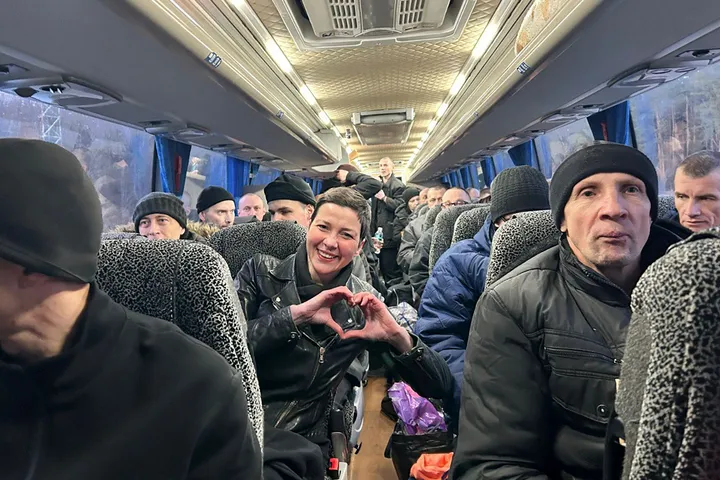After two weeks of intensive demonstrations and riots in West Papua from August to September, the central government still seems to lack a comprehensive solution to address the people's aspiration for independence and their protests against racial abuse.
A 'tight security' approach is sadly the most prominent strategy adopted by Indonesian President Joko “Jokowi” Widodo’s administration to address ongoing protests and turmoil in West Papua.
The public has now drawn its attention to deadly riots on 23 September in Wamena, West Papua. The police reported that 33 people died and more than 70 had been wounded.
Yet, locals have questioned this account saying that the death toll is most likely higher since some Papuans are still being victimised away from the scene of the incident. Hundreds of buildings have been torched, including government offices, public facilities, residential homes, and also vehicles.
More than 12,000 people have fled to Jayapura, and some of them have returned to their hometowns. These internally displaced people were not only from Wamena but also from neighbouring areas who were afraid of potential unrest in their areas.
The peaceful protests that turned into riots in Wamena have resulted in more harm than peace to the locals. In total, 53 people have died since riots erupted in Deiyai, Jayapura, Wamena, and a counterinsurgency operation kicked off in Puncak, according to the human right coalition group in Jayapura.
Riots in Wamena display the poor management of preventing and handling peaceful protests and unrest in West Papua.
Before the deadly protests in September, Wamena residents took the street to protest racial abuse in Java. The first peaceful demonstration took place at the front of the regent office with no violence on 26 August 2019.
One of the protesters told the crowd that Wamena residents have never treated non-Papuan settlers based on their skins or identities. The valley people respect all human beings. After the demonstration, the crowd peacefully returned to their houses without any violence.
However, some locals reported there was still disappointment over the way the national security authorities dealt with the racial slurs from the individuals, organisations, and security personnel in Surabaya. For them, the legal process did not result in justice for indigenous Papuans. The atmosphere is still charged.
The second peaceful demonstration, which was allegedly triggered by a racist slur from a non-Native teacher against a Papuan senior high-school student, turned into a turmoil shortly after some of the students got shot, allegedly by local security.
These were not warning shots but a deadly shooting towards the students that escalated the tensions. Some security personnel are allegedly involved in fatal shootings in Deiyai and Jayapura that have resulted in civilian casualties.
The brutality of local security is a poor reflection of how protest-and-conflict management is applied in West Papua since the first wave of demonstrations and riots started in August 2019.
The public statements on West Papua from by the central government and reinforced by a bulk of mainstream media in Jakarta also contribute to obfuscating the resolution of West Papuans' problems.
In public addresses, President Jokowi extends condolences only to the victims in Wamena and did not mention anything about victims in Jayapura and Deiyai, while General Tito Karnavian only emphasised the non-Papuan settlers as the victims of Wamena’s unrest. Their actions reflect the government's lack of empathy towards indigenous Papuans.
Furthermore, pointing fingers at a bunch of students raising the Morning Star flag, a symbol of independence, and accusing human right defenders, youth groups, foreign actors, West Papuan-independence figures living overseas, even the locals in Wamena as the masterminds behind the demonstrations and unrests obviously display the government's incapacity to address political and human rights issues in West Papua.
The government overlooks long-running, and deep-seated grievances among local Papuans that are a result of government neglect and mistreatment since West Papua became part of Indonesia in 1969.
The central government merely reinforces local divisions and provides a breeding ground for militancy among Papuan youth to continue their protests and demand a referendum.
The central government should provide conducive and friendly pre-conditions for a genuine reconciliation process to happen in West Papua. Intimidation, politically motivated arrests and repression merely strengthen the locals’ willingness to secede from Indonesia.
A history of violence, trauma and suffering forms the collective memory of locals, both indigenous and non-Papuans in West Papua and this will linger despite massive infrastructure projects, a vast sums of money given to indigenous Papuans, or even new provinces in West Papua.
Given the current situation and reactive measures adopted by the central government to deal with West Papuan problems, a genuine reconciliation between the central government and the Papuans will be impossible, although the president has shown some willingness for dialogue
But a heavy-handed security approach without a strong commitment to deal with deep-seated grievances among Papuans, as imposed by the central government, has only sharpened existing divisions.
The Papuans vitriol directed at the central government’s mistreatment has been shriller than ever.
























